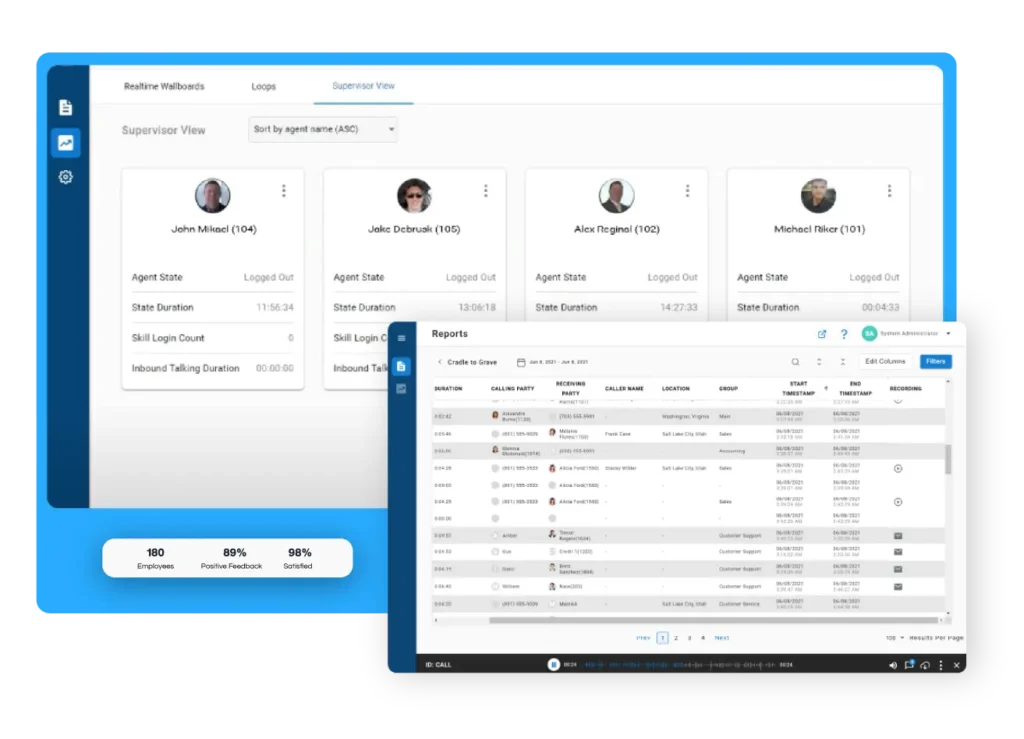Enterprise chatbots are transforming the way businesses communicate, both internally and with their customers. These AI-powered tools are built to handle high volumes of conversations, streamline support, and drive efficiency across teams. But behind every quick reply and smart response is a powerful system designed to understand intent, gather context, and deliver relevant solutions. In this blog, we’ll explore how enterprise chatbots work, what sets them apart from basic bots, and how they can enhance your operations from the inside out.
What Are Enterprise Chatbots?
Enterprise chatbots are advanced AI tools built to improve communication and automate interactions across large organizations. They rely on natural language processing, machine learning, and system integrations to deliver accurate, context-aware responses. These bots can handle customer inquiries, assist employees, and streamline internal workflows, making them a valuable asset for businesses looking to scale service and support.
What’s the difference between a chatbot and an enterprise chatbot?
It’s easy to think all chatbots function the same way, but the gap between a basic chatbot and an enterprise-grade solution is significant. While both are designed to assist users through automated conversations, enterprise chatbots are built for complex, large-scale operations. They offer:
- Complexity and Functionality: Basic chatbots usually follow scripted responses. Enterprise chatbots use AI and machine learning to manage complex, multi-step conversations more accurately.
- Data Handling and Integration: Regular bots operate independently, while enterprise chatbots connect to systems like CRMs, ERPs, and databases to pull in real-time business data.
- Scale and Deployment: Enterprise chatbots are designed to support large teams and customer bases across multiple departments, platforms, and communication channels.
- Security and Compliance: These bots typically include features like encryption, role-based access, and compliance with industry regulations such as HIPAA or GDPR.
- Cost and Implementation: Enterprise solutions typically involve a higher initial investment and a more involved setup process, but they offer long-term value through scalability and performance.
How Do Enterprise Chatbots Work?
Behind every chatbot interaction is a sophisticated set of technologies working together to understand, respond, and adapt. Enterprise chatbots rely on a mix of components that allow them to deliver intelligent, human-like conversations at scale.
- Natural Language Processing (NLP): NLP helps the chatbot process and understand human language. It breaks down what a user types into structured data that the system can analyze, making it possible to interpret different sentence structures, slang, or typos.
- Natural Language Understanding (NLU): NLU takes things a step further by figuring out what the user actually means. It identifies intent, extracts relevant details, and helps the chatbot determine the right response, even when a question is vague or phrased in an unexpected way.
- Machine Learning (ML): Machine learning gives enterprise chatbots the ability to improve over time. By analyzing past interactions and outcomes, the system can refine its responses, adapt to new scenarios, and better anticipate user needs.
- Dialogue Management: This is how the chatbot keeps conversations on track. It manages the flow of dialogue, remembers context, and ensures that responses stay relevant, even if a user jumps between topics or asks follow-up questions later in the chat.
- Integration: Enterprise chatbots connect to internal knowledge bases, CRMs, help centers, and other data sources to find and deliver accurate information. This allows them to provide real-time answers that are specific to the business and the user’s needs.
Benefits of Implementing Enterprise Chatbots: Why Should Businesses Care?
Enterprise chatbots are a strategic investment that delivers measurable impact. From cutting down response times to unlocking new insights, these tools help businesses operate smarter and serve customers better. They offer benefits like:
- Improved Efficiency and Productivity: Chatbots take repetitive tasks off your team’s plate, freeing up time for higher-value work. They can handle common questions, route tickets, and manage routine workflows around the clock.
- Enhanced Customer Experience: Faster, more personalized support leads to happier customers. Enterprise chatbots deliver instant responses, remember past interactions, and adapt their answers based on context.
- Cost Reduction: By automating large portions of customer service and internal support, businesses can reduce the need for additional headcount or outsourced support teams without sacrificing quality.
- Increased Scalability: As demand grows, chatbots scale effortlessly. They can manage thousands of conversations simultaneously, making it easy to support seasonal spikes or sudden traffic increases.
- Better Data Insights: Every interaction becomes a source of valuable information. Businesses can analyze chatbot conversations to spot trends, identify pain points, and fine-tune their messaging or support strategy.
- Competitive Advantage: Organizations that adopt intelligent automation stand out. With faster support, smarter systems, and more efficient workflows, enterprise chatbots help companies stay ahead in a fast-moving market.
Use Cases of Enterprise Chatbots
Enterprise chatbot systems are versatile tools with a wide range of applications across departments. They’re built to support both external customer interactions and internal operations, making them a smart choice for businesses aiming to improve service and efficiency at scale. Below are some of the most impactful ways companies are using chatbots today.
Customer Support
Chatbots can handle high volumes of support inquiries with speed and accuracy. They help customers get answers, troubleshoot problems, and access account information without waiting in line. Learn more about how AI is reshaping support in our blog on AI in contact centers.
Internal Support
Enterprise chatbots can also help employees navigate internal processes. From resetting passwords to checking time-off balances or accessing training resources, they reduce the burden on HR and IT teams by offering fast, self-serve solutions.
Sales and Marketing
In sales and marketing, enterprise chatbots assist in qualifying leads, guiding users through products or services, and delivering tailored recommendations. They can capture key information, answer pre-sales questions, and provide a seamless transition to human reps when needed.
Data Collection and Analysis
Every interaction with a chatbot becomes a source of valuable data. Businesses use these insights to track common issues, refine messaging, and uncover trends that help drive smarter decisions across departments.
Automation of Repetitive Tasks
Tasks like appointment scheduling, order tracking, and form submissions can all be automated through chatbots. This frees up live agents to focus on more complex and meaningful interactions, improving overall team productivity.
Empowering Your Contact Center with Enterprise AI Chatbots
AI-powered enterprise chatbots offer powerful benefits, like smarter support, streamlined operations, and valuable data insights. But you don’t need a Fortune 500 budget to take advantage of these tools. With Xima, small and mid-sized businesses can access enterprise-grade chatbot capabilities without the heavy price tag or complex setup.
Want to see it in action? Book a demo today and discover how our AI-powered solutions can help your team work smarter, not harder.



